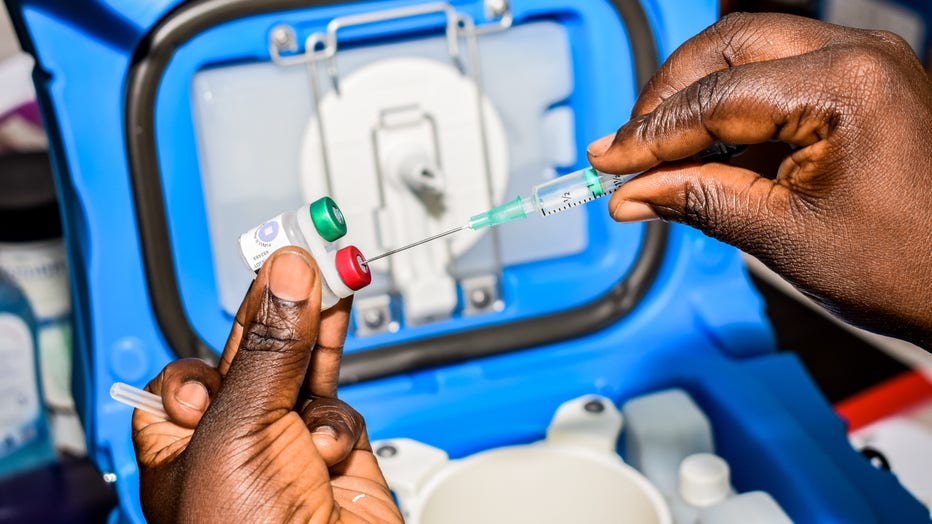Malaria cases in Florida, Texas: Signs, symptoms, and how to prevent it?
4 cases of malaria detected in Florida
Five cases of malaria have been detected in the U.S. in the past two months, the first time there's been a local spread in two decades. In Florida, four cases have been confirmed in Sarasota and Manatee counties while one has been confirmed in Texas' Cameron County, the Centers for Disease Control and Prevention (CDC) announced.
FLORIDA - Five cases of malaria have been detected in the U.S. in the past two months, the first time there's been a local spread in two decades.
In Florida, four cases have been confirmed in Sarasota and Manatee counties while one has been confirmed in Texas' Cameron County, the Centers for Disease Control and Prevention (CDC) announced. At this time, health officials said there's no reason to think the cases in these states are related.
The four Florida cases are within proximity of one another and active surveillance for other cases is ongoing amid a mosquito-borne illness alert issued in these counties.
Health officials said the risk of locally acquired malaria remains "extremely low" in the U.S.
These five cases mark the first since 2003, when eight cases of P. vivax malaria were detected in Palm Beach County.
Here's what you need to know about malaria:
What is malaria?
Malaria is a mosquito-borne disease caught by a parasite that commonly infects a certain type of mosquito that feeds on humans, according to the CDC. It's a serious and sometimes fatal disease. Serious complications and death are possible if malaria is left untreated.
The cases identified in Florida are P. vivax species of malaria, which are not as fatal as other species, health officials said.
About 2,000 cases of malaria are detected in the U.S. every year – most of which are travelers and immigrants returning from countries where malaria is more common, the CDC said.
How do you get malaria?
Malaria is not transmitted from person to person. Infected Anopheles mosquitoes can transmit malaria to humans and they must have been infected through a previous blood meal taken from an infected person, the CDC said.
How to prevent malaria
While malaria can be a deadly disease, it can usually be prevented, the CDC said.
"Drain and Cover" is a method currently being used in Sarasota and Manatee counties after four cases were detected – you should drain standing water to keep mosquitoes from multiplying and you should cover your skin with clothing or repellent and cover doors and windows:
- Drain water from garbage cans, gutters, pool covers, toys, flower pots or anywhere else where sprinkler and rain water have been collected
- Discard old tires, bottles, cans, pots, pans, broken appliances and other items not being used
- Empty and clean birdbaths and pet water bowls at least once or twice a week
- Protect boats and vehicles from rain with tarps
- Maintain swimming pools and keep them appropriately chlorinated
- Wear socks, shoes and long pants with long sleeves (especially when working in areas where mosquitoes are present)
- Apply mosquito repellent to bare skin and clothing
- Cover doors and windows with screens to keep mosquitoes out of your house
Signs and symptoms of malaria
Symptoms of malaria include:
- Fever
- Shaking chills
- Headache
- Muscle aches
- Tiredness
- Nausea
- Vomiting
- Diarrhea
Malaria might also cause anemia and jaundice because of the loss of red blood cells.
If malaria goes untreated, it can become severe and may cause kidney failure, seizures, mental confusion, coma and death.
Malaria treatment: Is there a vaccine?

A health worker measures the dosage of malaria vaccine in Ndhiwa, Homabay County, western Kenya on September 13, 2019 during the launch of malaria vaccine in Kenya. - The vaccine (Mosquirix) is the world's first malaria vaccine that has been shown to
Antimalarial drugs are available and should be taken early on. If you are sick or have recently traveled to an area with malaria, go see a doctor to be diagnosed and treated as soon as possible.
Prescription drugs can also cure malaria.
In 2021, the World Health Organization recommenced the RTS,S malaria vaccine for broader use among children in sub-Saharan Africa and other areas with moderate to high malaria transmission. This marks the first vaccine for malaria.

